Ballo, Green, Sotto, Strawther among U19 stars we can see again in 2021
HERAKLION (Greece) - Oumar Ballo, Jalen Green, Kai Sotto and Julian Strawther were some of the stars of the FIBA U19 Basketball World Cup 2019. They were born in 2002 so they can be back at 2021.
HERAKLION (Greece) - Oumar Ballo, Jalen Green, Kai Sotto and Julian Strawther were some of the most exciting stars of the just-completed FIBA U19 Basketball World Cup 2019. What makes it even more thrilling is that those four players are just a selection of many top youngsters who could be back in the competition in two years.
The quartet is among 15 players from the Heraklion spectacle who were born in 2002 while two others were born in 2003. Here is a rundown of those names, highlighting the best performers.
Oumar Ballo, Mali
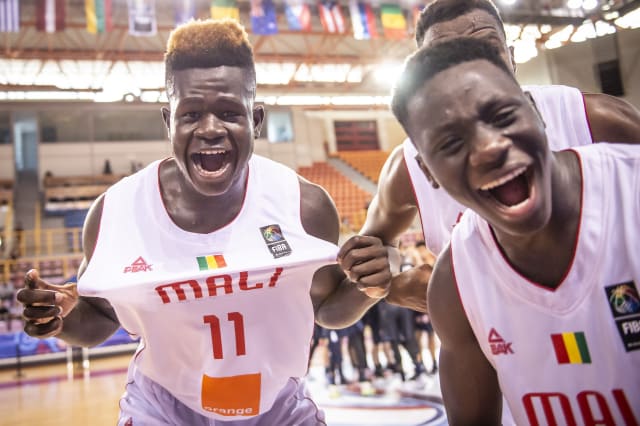
Ballo, who only turns 17 on July 13, joined the Heraklion party late after missing the first two games. But he took the U19 World Cup by storm, helping Mali with a historic run to the Final and making the All-Star Five as he averaged 17.6 points and led the tournament with 11.8 rebounds and 3.8 blocks to go with 1.6 assists and 1.2 steals. His teammate Mohamed Sidibe could also be at the 2021 U19 World Cup as he was born May 25, 2002.
Jalen Green, United States
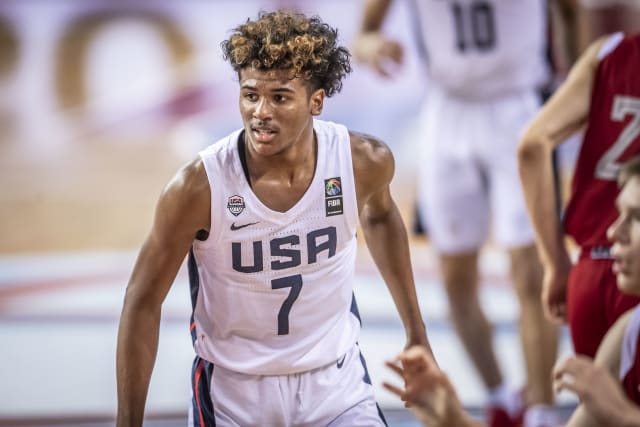
Green has a chance to make some real history for USA Basketball. He has already won titles at the FIBA U16 Americas Championship 2017 and FIBA U17 Basketball World Cup 2018, winning the MVP award in the latter one despite being a year younger than the rest of the competition. In Heraklion he then joined a list of only 10 players from the United States to win both the U17 and U19 World Cup titles as he averaged 10.1 points, 2.1 rebounds, 1.3 assists and 1.7 steals. Already nicknamed Unicorn, Green may not be done just yet. He could play for United States next summer at the FIBA U18 Americas Championship 2020 and then return to the U19 World Cup in 2021.
Kai Sotto, Philippines
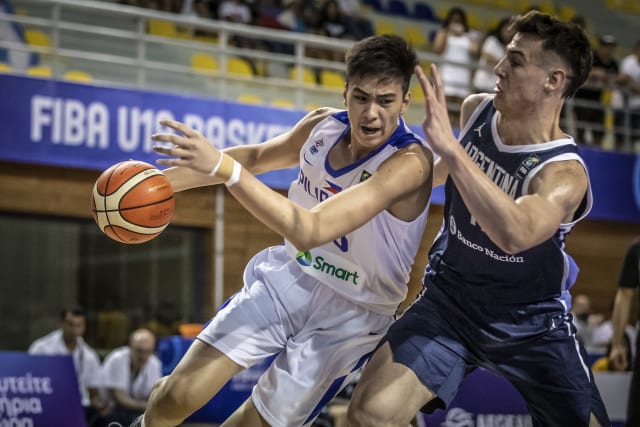
Philippines came to Heraklion with such high hopes and dreams, returning to the U19 World Cup stage for the first time since 1979 and having a great big man duo of Kai Sotto and AJ Edu. But that duet became a solo just 2:02 minutes into the tournament as Edu suffered a major injury and left Sotto alone to battle the other bigs of the tournament. Sotto shined at times but also struggled as he collected 11.7 points, 7.9 rebounds and 2.0 assists while finishing tied for second in blocks (3.1). The Filipino star talent will face a major challenge to get his country once again through the tough Asian qualifiers with Australia and New Zealand. But U19 World Cup fans could maybe see him again in two years.
Julian Strawther, Puerto Rico
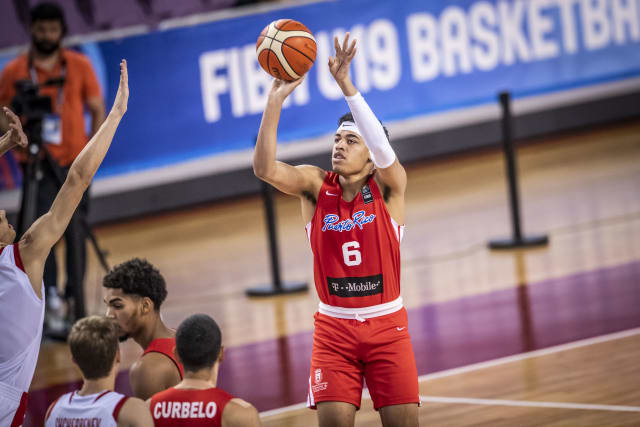
Puerto Rico came up just short of making history of their own as they finished sixth - matching their best-ever showing from 2003 and 2009. And a big reason for that performance was Strawther, who was outstanding throughout the tournament. Sporting his "Karate Kid" headband, Strawther finished as the second leading scorer of the event with 22.0 points per game, including a 40-point outburst in the game for sixth place, which tied the mark for ninth on the all-time single game scoring list. Strawther, who was in the running to make the United States team for the FIBA U17 Basketball World Cup 2018, also scored 35 points against China and he also averaged 6.1 rebounds, 1.4 assists and 1.1 steals for the Puerto Ricans. The FIBA Americas side has played in the last two U19 World Cup and Strawther later this month will play in Puerto Rico at the Centrobasket U17 Championship 2019, which is the qualifier for the FIBA U18 Americas Championship 2020, through which Strawther and Puerto Rico hope to make it three U19 World Cups in a row for the first time in the country’s history since 2003 to 2009. And Strawther could have company in 2021 as Diego Romero from the Heraklion team is also from the 2002 generation.
Senegal quartet could be back
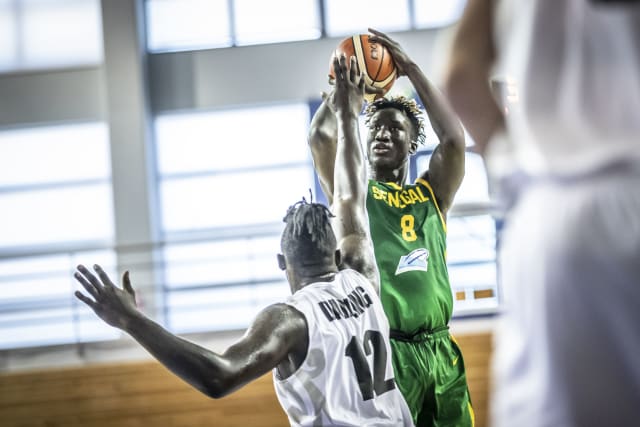
Senegal were appearing in their first U19 World Cup since 2013, and things look solid that they could make it two in a row as four of their players were born in 2002 or even 2003. Khalifa Diop ranked second on the team with 13.1 points to go with 7.0 rebounds, 1.4 assists, 1.3 steals and 1.3 blocks while fellow 2002-born Ibou Badji collected 6.9 points and 5.1 rebounds and was tied for second in the tournament with 3.1 blocks. Pierre Sene and Pape Sow meanwhile were both born in 2003 with Sow averaging 3.3 points, 1.8 rebounds and 1.0 assists and Sene picked up 1 point and 4 rebounds in 17 minutes over four games.
Still others
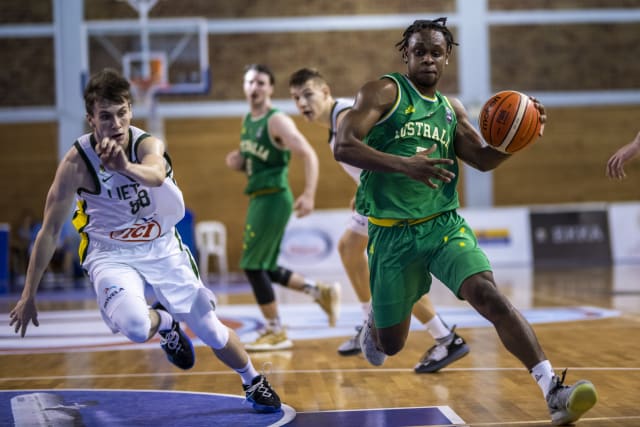
As if all those players were not enough, fans could see even more top players from Heraklion back in two years. Juan Fernandez was Argentina's leading shot-blocker while Tamuri Wigness was tops for Australia in assists and steals and Charles Bediako was fourth in scoring, tied for second in rebounds and tops in blocks for Canada, who also had Josh Primo as a 2002-born player. China had the 2002-born duo of Li Lutong and Lyu Anyu, and Greece’s team included Iosif Koloveros.
FIBA